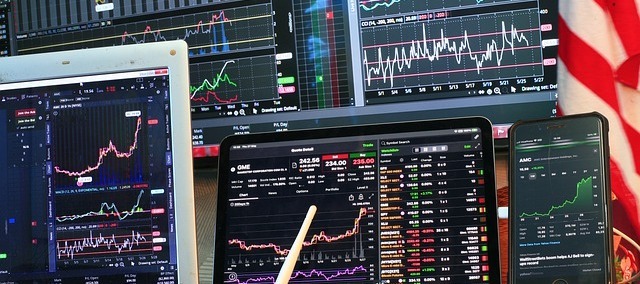
Stock futures decline amid renewed virus, growth concerns
Stock futures headed toward a lower open Monday morning, with lingering concerns over the growth outlook at least temporarily outweighing optimism over a strong second-quarter earnings season.
Dow futures dropped more than 100 points, or 0.4%, in early trading. The S&P 500 and Nasdaq also pointed toward a lower open. The three major indexes each set record closing highs on Friday, shaking off a sell-off at the start of last week as worries over the Delta variant increased.
Cyclical stocks including airlines, cruise lines, lodging companies and oil majors were some of the biggest decliners Monday morning, underscoring some of the ongoing jitters around the strength of the economic recovery as shares most closely set to benefit from further reopenings pulled back. Treasuries rose further to push yields lower, and the benchmark 10-year yield dropped another nearly 5 basis points to trade below 1.24%.
Some strategists suggested the risk-off move in markets would prove temporary.
"We think the Delta variant should pose a minimal risk to the U.S. equity market," Goldman Sachs U.S. equity strategist David Kostin wrote in a note Monday. "From an economic perspective, widespread vaccinations and strategies focused on containment suggest limited medical and economic downside even if infections continue to rise."
"From a flows perspective, robust household cash balances and corporate buyback authorizations should continue to support inflows for equities, increasing the likelihood that market participants perceive a pullback as a buying opportunity," he added.

Later this week, investors will hear from Federal Reserve officials over the path forward for monetary policy, which will likely be informed by the increased concerns over the Delta variant and peaking economic growth rates. Many are betting that these downside risks will overshadow worries over inflation, leaving central bankers in a wait-and-see mode before announcing any changes to their crisis-era asset purchase program and near-zero interest rate policies.
"[Federal Reserve Chair Jerome] Powell’s mid-July Congressional testimony raised the prospect that the statement would introduce an asymmetric policy bias: standing prepared to adjust policy if the Fed 'saw signs that the path of inflation or longer-term inflation expectations were moving materially and persistently beyond levels consistent with our goal,'" JPMorgan economist Michael Feroli wrote in a note.
"Since that testimony the rise of the delta variant has injected some downside growth risks into the outlook, and this should help the doves argue for retaining the current symmetric policy bias," which would focus on creating conditions to maximize employment while also keeping inflation in check, he added.
Traders are also set to focus on a packed schedule of corporate earnings results this week, which will include mega-cap technology companies like Apple (AAPL), Microsoft (MSFT) and Amazon (AMZN) in addition to a host of other companies including UPS (UPS), 3M (MMM), Starbucks (SBUX) and Boeing (BA).
Earnings season so far has been especially strong, helping support the indexes' march to new all-time highs even in light of recent economic concerns. So far, 24% of companies in the S&P 500 have reported second-quarter results, and of these, 88% have topped Wall Street's earnings per shares estimates, according to an analysis from FactSet as of Friday. The blended earnings growth rate for the blue-chip index, which includes both companies' reported growth rates and the estimated rates for the companies have yet to report, stands at 74.2%, which would be the highest since the fourth quarter of 2009.
© 2021 LeackStat.com
